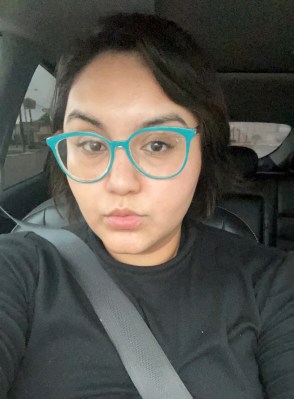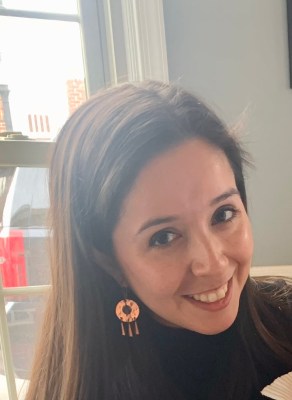On June 24, 2022, a radical far-right majority on the U.S. Supreme Court overturned Roe v. Wade and denied the constitutional right to abortion in Dobbs v. Jackson Women’s Health Organization. This decision propelled the country into a state of confusion where currently, 14 states have abortion bans in place at any point in pregnancy, and many others have additional, severe bans. The Dobbs decision resulted in waves of legal and legislative challenges across the country aimed both to expand access to abortion as well as to eradicate it. All the while, extremist lawmakers have brazenly attempted to politicize drug safety and the judiciary in one fell swoop to eliminate access to medication abortion in the case of the Alliance for Hippocratic Medicine v. the U.S. Food and Drug Administration (FDA). That litigation has the potential to eliminate access to mifepristone—one of the drugs used in the two-step regimen for abortion care and miscarriage treatment—across the country.
Amid this constantly shifting landscape, health care professionals have been caught in a confusing and obscure web of evolving legal and legislative challenges, facing profound barriers and obstacles while trying to navigate how to provide essential and lifesaving health care to their patients in an already inequitable health system. These challenges affect not only the provision of pregnancy care but also the training that new medical and health care professionals receive.
On the first anniversary of Dobbs, health care professionals across the country share their stories about providing abortion care and emotional support in the aftermath of the Supreme Court decision.
![Protesters outside the Supreme Court (Getty).]()
Tell the Supreme Court To Protect Abortion Access
Andrea Contreras
Rio Grande Valley, Texas
Dr. Andrea Contreras is a third-year OB-GYN resident in South Texas. Her hospital often treats patients from underserved and undocumented populations, many of whom experience barriers to health care such as low incomes, limited English language proficiency, and limited access to transportation. Many patients struggle to afford an annual gynecologic exam, pap smear, or a necessary biopsy.

Andrea Contreras is pictured in April 2023. (Photo credit: Andrea Contreras)
In Andrea’s second year of residency, the U.S. Supreme Court issued its Dobbs v. Jackson Women’s Health Organization decision, which overturned the federal right to abortion. But prior to Dobbs, Texas enacted S.B. 8, also known as the “Texas Heartbeat Act.” This law allows for civil action against any individuals who provide abortion care or support such care via provision of funds or transportation by effectively deputizing residents. As Texas residents were already dealing with the fallout from S.B. 8, the Dobbs decision exacerbated confusion and fear among patients and providers.
In the wake of S.B. 8 and Dobbs, Andrea said she saw two significant shifts: 1) More women delaying care for common pregnancy complications out of potential legal repercussions, which could result in dire and preventable issues such as life-threatening bleeding or infections, and 2) a fear among providers due to seemingly intentional legal ambiguity, which led to delays in care with potentially catastrophic results. Because of this, providers like Andrea often face limitations in their ability to provide specific types of care. For example, a second-trimester pregnancy with ruptured membranes is considered high risk for infection, sepsis, and even death. Andrea also said she often questioned the legality of care when attempting to provide evidence-based management options for patients in the middle of an ongoing pregnancy loss. Meanwhile, patients presenting with early pregnancy bleeding were scared about possible legal repercussions, as any person could bring a lawsuit against them for suspicion of an induced or elective abortion.
Although Andrea’s practice is certified to dispense mifepristone for miscarriage care, despite some recent steps forward, aspects of the certification requirements for the drug’s use present yet another unnecessary administrative hurdle for health care providers that reduces access. Mifepristone is used in medication management of early pregnancy loss, which includes diagnoses such as missed abortions and early embryonic demise. Andrea said she fears that without mifepristone, patients already mourning a pregnancy loss will face more difficulty accessing critical health care, longer labor induction process, and potentially more complications.’
Click here to read more about Andrea’s story.
Mifepristone is very safe. We know that it shortens the time window to complete an abortion and it decreases the need for surgical intervention. It’s effective.
Andrea Contreras
Han-Yu Stephanie Liou
Chicago, Illinois
Dr. Stephanie Liou, a pediatrician and National Health Service Corps scholar in Chicago, is passionate about health equity and reproductive justice. Stephanie said that growing up in a low-income, single-parent immigrant family inspired her to pursue a career in health care and advocate for families like her own.
Since the U.S. Supreme Court’s decision to overturn Roe v. Wade and recent legal challenges to medication abortion, Stephanie has noticed many patients are unsure about what options are available to them. Even in Illinois, where abortion is still protected, she notes that among teens, misinformation travels faster and lingers longer, especially through social media and word of mouth. Many are already under social pressure from peers or family and are now further confused by the constantly evolving legal landscape surrounding abortion.
With teens already facing significant barriers to reproductive health care, access to medication abortion is absolutely critical as limited time, resources, and logistical support already narrow their choices. Stephanie said she’s very concerned about the ongoing Alliance for Hippocratic Medicine v. FDA case, which threatens the availability of mifepristone; she cares for predominantly low-income minority teens and families on the Southwest Side of Chicago and said she worries that her patients will be disproportionately affected if the judge’s order to overturn the FDA’s approval of mifepristone is allowed to stand.
Recently, Stephanie informed a teen that she was pregnant. Tearfully, the teen asked her if the “stuff I heard about in the news” meant that she could no longer have an abortion if she didn’t feel ready to have a baby yet. Despite the Dobbs v. Jackson Women’s Health Organization ruling and misinformation spreading online—via TikTok, in this case—as an Illinois resident, that patient was still able to choose what was right for her. With the support of her partner and family, she chose to continue the pregnancy. Around the same time, Stephanie said that another teen under her care chose mifepristone. Knowing about and having equal access to all the options helped both patients make the right decisions for their own lives.
Click here to read more about Stephanie’s story.
This [mifepristone case] is really dangerous. We are putting politics into the scientific regulatory process, where it doesn’t belong.
Stephanie Liou
Andrea Palmer
Fort Worth, Texas
Andrea Palmer, a board-certified general OB-GYN and robotics surgeon in Fort Worth, Texas, provides services to patients from a wide range of backgrounds. Andrea recalls how, prior to the reversal of Roe, Texas’ S.B. 8—a bill that allows for civil action against any individuals who provide abortion care or support such care via provision of funds or transportation by effectively deputizing residents—was already beginning to limit patient care. Providers in her community found themselves nervous to speak freely to their patients about the complete and comprehensive pregnancy and abortion care they might need. Andrea said she worried a vigilante posing as a new patient would attempt to bait her into talking about abortion and attempt to sue her, and she sometimes skirts the topic of abortion when speaking with patients about their health care options.
But Andrea said the most heart-breaking change to her practice has been her approach when working with patients who have premature rupture of membranes (PROM)—a pregnancy complication in which the fluid sac protecting a fetus is broken too early—or whose fetuses are not compatible with life. Before the passage of S.B. 8 and the Dobbs v. Jackson Women’s Health Organization decision, these patients would have been able to safely terminate their pregnancies in Texas; now, patients grieving a wanted pregnancy must travel across multiple states to access lifesaving care. Some patients have the resources to make that journey, while others have no choice but to risk their health and carry a fetus to full term. Under Texas law, providers like Andrea must wait until these patients develop a severe infection to induce labor—even though this threatens the patient’s life and increases the risk that the patient will lose the ability to have children in the future.
With increasing legal challenges to Andrea’s ability to practice safely in Texas, she said she’s considering moving to a state where she can fully use her education and training.
Click here to read more about Andrea’s story.
When common sense would say, ‘Ending this pregnancy is not an ideal situation, but a necessary one,’ I don’t think a lot of people in Texas really understood that the abortion law would disrupt care in these cases.
Andrea Palmer
Raven E. Freeborn
Washington, D.C.
Raven Freeborn entered the field in 2017 as a full-spectrum doula—a person who provides care and support to a person at all stages of pregnancy—and discovered that birth work is part of their life’s work and mission. Raven’s work is deeply rooted in ensuring Black, Indigenous, and other people of color, as well as queer and transgender people of color, are uplifted, valued, and put first. In working at the intersection of reproductive justice, gender justice, and economic justice, Raven said they see how attacks on abortion are part of a larger, coordinated, and strategic attack on peoples’ bodily autonomy that especially affects people who are historically and systemically oppressed, such as Black and queer people, people with disabilities, and people with limited English language proficiency.
Since the overturn of Roe v. Wade, Raven said they have observed that abortion restrictions disproportionately affect such groups—one reason why mifepristone is critical to reducing the systemic inequalities and barriers to health care that historically oppressed groups face. Raven notes that medication abortion offers an option for people to exercise choice from the safety of their homes and communities. But the legal challenges to mifepristone threaten to worsen inequities, as people who could access an abortion earlier must wait until further along to have a surgical procedure, which is likely to more severely disrupt their lives.
Raven regularly navigates hospitals and other forms of medical support with great attention to a patient’s experience. Raven said that, for abortion doulas, this work is often unpaid and comprises a volunteer infrastructure that is invisible to those outside the field. Amid increasing legal challenges, Raven notes that abortion doulas often continue to provide the invisible infrastructure of care—with a lot more risk of criminalization for people who self-manage abortions.
Click here to read more about Raven’s story.
The ability to access abortion care in one's community is a practice of autonomy that supports the inherent dignity of an individual and their respective cultural or ethnic processes.
Raven Freeborn
Shawana Moore
Atlanta, Georgia

Shawana Moore is pictured in November 2022. (Photo credit: Shawana Moore)
Shawana Moore is a board-certified women’s health nurse practitioner and is training the next generation of advanced registered nurse practitioners as an assistant professor at Emory University in Georgia. When the Dobbs v. Jackson Women’s Health Organization decision was released, students and faculty expressed uncertainty about the future of education and training in states that have restricted access to abortion, such as Georgia. Students may have increasingly limited exposure to clinical training and hands-on experience in evidence-based, comprehensive reproductive and sexual health care. Shawana said she thinks these limitations in clinical training could have the potential to gravely affect a student’s training and readiness to deliver care to their future patients.
Through her volunteer work at a practice site in Georgia, Shawana is often the first point of contact for patients seeking an abortion. She said the Black maternal mortality crisis hits close to home and motivates her to provide Black and brown women with dignity and respect in their health care experience. The evolving landscape of abortion restrictions adds yet another barrier for Black and brown patients seeking care. Since the reversal of Roe v. Wade and Georgia’s six-week ban on abortion care, Shawana recalls a lot of tearful conversations with patients around the uncertainty of care. While the center where she volunteers can provide funding for patients to travel out of state to access care, for the people already facing structural and systemic inequalities, traveling for a procedure becomes impossible. Like in any area of health care, Black and brown communities are further marginalized when restrictions and bans are enacted. As a Black woman who has experienced firsthand the inequities of the health care system, Shawana said instilling a new standard for the generations to come is an important goal for her.
Click here to read more about Shawana’s story.
As an educator and a director of an advanced practice registered nurse program, it's important for me to ensure my students have the most current, up-to-date information regarding how to properly care for diverse populations of people across the lifespan.
Shawana Moore
Liz Bastias-Butler
Washington, D.C.

Liz Bastias-Butler is pictured in January 2020. (Photo credit: Liz Bastias-Butler)
Liz Bastias-Butler is a full-spectrum doula—a person who provides care and support to a person at all stages of pregnancy—and director of clinical services at a clinic in Washington, D.C. To Liz, being an abortion doula means providing support for pregnant people exercising their reproductive choice, including by allowing them to feel seen and heard, providing space for their experiences, and reassuring them that they are not alone in that moment. Liz describes being a doula as providing patient-centered care and unconditional love one patient at a time.
As one of four clinics in the country that sees patients through all trimesters of pregnancy, Liz’s clinic is often the last stop for patients seeking termination after 22 weeks. As more states limit access to abortion, Liz said she sees an increasing number of patients traveling from states with abortion restrictions in place, such as Texas, Tennessee, and Kentucky, to access care. Many are patients presenting with fetal anomalies who previously would have been allowed to receive care in those states. However, because abortion care and miscarriage care often require the same procedures and medication management, providers are sometimes uncertain if they are permitted to provide in those states under certain abortion bans. Liz said what troubles her most is seeing patients who should have been able to get an abortion much earlier but are subjected to unnecessary trauma because recent legal changes outside their control have delayed their care by several weeks. Her patients often travel across the country and spend at least two days in a place far from home, dealing with an emotionally and physically taxing medical procedure. Liz noted that an increasing number of her patients are concerned about legislation such as bounty hunter or vigilante laws that embolden people to report those seeking an abortion. Patients are terrified to leave a paper trail, worried that their loved ones may get in trouble, and scared to reach out for help.
Click here to read more about Liz’s story.
There’s a heightened fear around notification or vigilante laws. It's especially hard for second-trimester patients who are terminating for fetal anomalies.
Liz Bastias-Butler
Conclusion
As these providers’ testimonials illustrate, politicians and judges cannot be allowed to determine neither whether any drug is safe, nor the kind of medical care that Americans need. Such important decisions must remain within the hands of health care professionals and scientific experts.